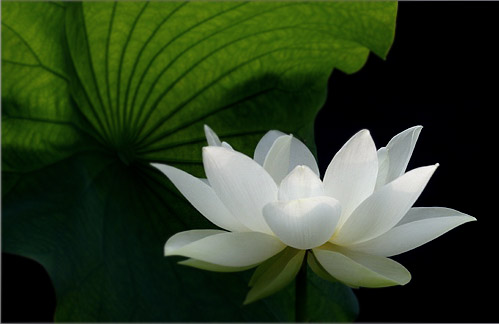 According to Kriya Yoga, the natal horoscope is a symbolic diagram of the psyche. It shows the basic layout of karmic forces which influence the individual from within, as mental inclinations and emotional
predispositions. It shows excesses and deficiencies which need correction, as the soul reaches
towards balance and casts off the Kleshas, or spiritual obstructions.
According to Kriya Yoga, the natal horoscope is a symbolic diagram of the psyche. It shows the basic layout of karmic forces which influence the individual from within, as mental inclinations and emotional
predispositions. It shows excesses and deficiencies which need correction, as the soul reaches
towards balance and casts off the Kleshas, or spiritual obstructions.
There is no judgement here: merely a geometric depiction of the forces which promote and obstruct the flow of life. Yoga aims to harmonize those forces and thus ameliorate or soften the nature of limiting Karma - not only to solve our immediate problems of health, wealth and happiness - but our ultimate predicament. The goal is greater awareness and expression our essential nature, which is identical with the Supreme Soul or Brahman.
By proper study of this symbolic map, we can gain conscious access to what is, for most people, un-conscious: our underlying attitudes and instinctive patterns of behavior. These inner impulses attract us to what we call outer experience, that we may learn and harmonize with the natural order of Life. We are all reaching towards Balance.
The greater the imbalances within, the more instructive are the outer experiences to which we are drawn. With greater experience, we learn greater wisdom: what to do and what not to do.
According to the ancient Chinese philosopher Lao-Tse:
Of all the planetary symbols, Saturn is most closely associated with this process of acquiring and discarding. In religious terms, through its classical rulership of Capricorn and Aquarius , it "punishes the wicked and rewards the righteous". In modern parlance, the impulse of Saturn is to conserve and consolidate structures that are useful (Capricorn) and to revise and restructure those which are no longer useful (Aquarius). Saturn wisdom lies in knowing what is worth the effort to sustain and when the time has come for major revision.
 The Sanskrit word for planet is graha - from which we get our
modern English words "grasp", "grab" and "grip". The symbolic energies of the planets are "graspers": they grab you by the
neck, as it were and draw you to particular experiences, for your own unfoldment. The orthodox Hindu disagrees
with the old Western adage, "The stars incline, they do not compel": In the view of
Indian astrology, planets are impersonal agents of Divine Will: teachers in the School of Life.
And of all the teachers in the school-house, Saturn is the one which carries the biggest
stick. We might even say it's the grabbiest graha: the Lord of Karma which facilitates
the unfoldment of each individual soul or Jiva.
The Sanskrit word for planet is graha - from which we get our
modern English words "grasp", "grab" and "grip". The symbolic energies of the planets are "graspers": they grab you by the
neck, as it were and draw you to particular experiences, for your own unfoldment. The orthodox Hindu disagrees
with the old Western adage, "The stars incline, they do not compel": In the view of
Indian astrology, planets are impersonal agents of Divine Will: teachers in the School of Life.
And of all the teachers in the school-house, Saturn is the one which carries the biggest
stick. We might even say it's the grabbiest graha: the Lord of Karma which facilitates
the unfoldment of each individual soul or Jiva.
Is there Free Will, or is there Predestination ? Yes !
To some, the mysterious and beautiful rings of Saturn are an obvious physical correspondence to its basic role: to confine, to position, to demarcate, to frame. As the saying goes, "You have to draw the line somewhere". Saturn teaches us where to draw the line.
 Compared to today's world, medieval India was highly structured: it had a caste system
where everyone's occupation and role was believed to have been divinely ordained and pre-assigned before
birth, according to their level of evolution. A male would take up the occupation of his father, worship the
deity of his family and village and marry a spouse according to the direction of his parents.
Compared to today's world, medieval India was highly structured: it had a caste system
where everyone's occupation and role was believed to have been divinely ordained and pre-assigned before
birth, according to their level of evolution. A male would take up the occupation of his father, worship the
deity of his family and village and marry a spouse according to the direction of his parents.
By properly executing their prescribed duty or Dharma, people could anticipate a just reward: re-birth on a higher rung of the Great Ladder of Existence. A woman's role was to serve her appointed husband, to follow him wheresoever he might go and support him in whatsoever he might do. If she was devout and pious and her husband predeceased her, she would throw herself on the funeral pyre and follow him in Death as in Life. Like her husband, her reward for a job well-done, was promotion to the next step up: better Karma next time.
Reincarnation is key here. Life is stratified - a numberless series of steps, from a beginningless origin to an endless future. The role of Man is to ascend the mountain (Capricorn), step by step: meeting one's obligations, performing the proper rituals, receiving the proper initiations and making the proper accomplishments. Man submits to the will of the Universe, expressed through the customs of the social order - until the time has come for release from that order: Moksha or "liberation" (Aquarius).
In the modern era, less emphasis is placed on obedience to the social order (Capricorn). Greater energy is spent on the cultivation of individual judgement and invention (Aquarius). But these are two sides of a single coin. The social order is nothing but a collection of individuals and individuals can only be different, when compared to others within their society.
The classical Hindu view may be a bit oversimplified: reincarnation does not always proceed along a "straight line" so to speak. While the soul matures and unfolds from lifetime to lifetime, the outer circumstances are not always progressively more comfortable and easy. Souls grow through adversity as well as serenity.
 Astrological clients often first seek counsel when Saturn cycles become active
in their chart. Clients demand to know "What's going on ?" Invariably, they ask "When will this period of constriction will be
over?" At such times, many clients first learn about the phases of the 29-year transit cycle of
Saturn and how our Karma crystalizes at different points along that cycle. The Saturn Return brings many of our more impractical plans to a close,
forcing us to build a new foundation. Some clients come when they change from the Mahaa Dasha (major period) of
Jupiter, to the 19-year period of Saturn. Something has changed and they want to know why.
Astrological clients often first seek counsel when Saturn cycles become active
in their chart. Clients demand to know "What's going on ?" Invariably, they ask "When will this period of constriction will be
over?" At such times, many clients first learn about the phases of the 29-year transit cycle of
Saturn and how our Karma crystalizes at different points along that cycle. The Saturn Return brings many of our more impractical plans to a close,
forcing us to build a new foundation. Some clients come when they change from the Mahaa Dasha (major period) of
Jupiter, to the 19-year period of Saturn. Something has changed and they want to know why.
The position of Saturn in the horoscope gives a big clue about where we can expect challenges in our life: those areas where we have to work harder, wait longer, endure more rejection than we feel we deserve. In the 7th House, the house of partnership, Saturn brings delays or denial in love. It fosters relationships with older, wiser partners, or with those who require extra care and support. When Saturn connects with Venus, the same effects are seen: we reach maturity by learning to honor our practical obligations and commitments to others, whether they are fun or not.
In the 6th House, the house of work, Saturn leads to jobs that are "beneath one's station", or jobs where we learn the value of time and precision. All things being equal, this placement suggests that the native feels that they haven't worked hard enough in the past and wants to set the record straight, by being of service to others. In the house of children and speculation, (the 5th House), Saturn can lead to problems with progeny, or no progeny at all. It can bring children who demand all our attention, or signify the birth of an exceptionally mature or industrious child. These predictions can be made with greater confidence, when natal Saturn has aspects with the rulers of these houses, or houses themselves. As in Allopathic Medicine, "like increases like".
In classical astrology, Saturn is the outermost planet, the slowest moving and thus the one whose cycle relates to the soul's journey of unfoldment. While Jupiter shows the interests of Society and Propriety - the Law of Man - Saturn shows the hand of fate, the Law of God. Jupiter holds together the social order: Doctors, Lawyers, Ministers. Saturn holds together Nature itself. Saturn's laws are Science.
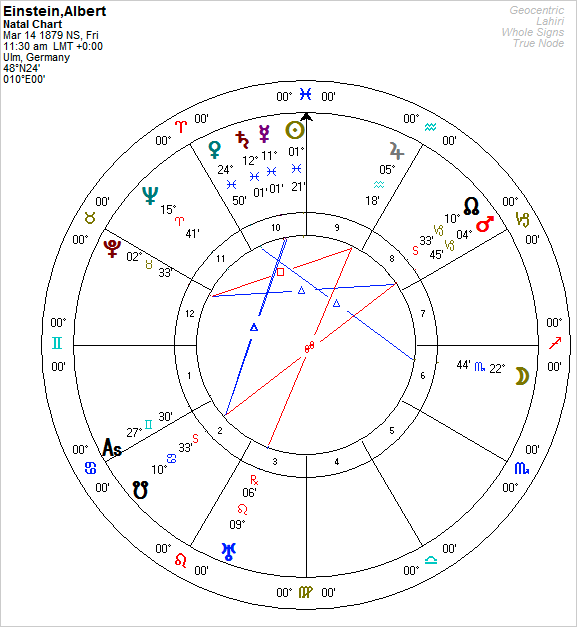
 Saturn and Uranus are the planets of scientists. In classical Astrology, Saturn rules Capricorn at Night and Aquarius by Day.
In modern Astrology, Aquarius is ruled by Uranus. When strongly disposed in a horoscope, Saturn can gives a profound nature and the perseverance required for sustained enquiry.
When Uranus is strong, it gives speed and insight. When the two operate together with Mercury, the prime symbol of cognition... look out !
Saturn and Uranus are the planets of scientists. In classical Astrology, Saturn rules Capricorn at Night and Aquarius by Day.
In modern Astrology, Aquarius is ruled by Uranus. When strongly disposed in a horoscope, Saturn can gives a profound nature and the perseverance required for sustained enquiry.
When Uranus is strong, it gives speed and insight. When the two operate together with Mercury, the prime symbol of cognition... look out !
Of all the symbols in a chart, the rising sign is the most personal, most important - and for Einstein, it's Gemini. (The Ascending sign changes every 2 hours. By comparison, it takes the Moon 2 1/2 days to change sign). All things being equal, it is therefore the root symbol of the chart: the Karmic indicator par excellence.
Also important is the planet which rules the rising sign. It's called the chart ruler or chart lord. For Gemini Einstein, it's Mercury - the thinking person's planet - and Mercury is very close to Saturn. This combination gives slow thinking, deep thinking. These two planets are very close in Einstein's chart.
Einstein has the ruler of the First House (Mercury) in the Tenth House. This Yoga ("combination") relates to people in positions of prominence. He also has the Sun in the Tenth House and Saturn in the Tenth House. The Sun in the 10th is another symbol of notoriety and position. Saturn in the Tenth House... more of the same ! Saturn there is domicile ("at home") since Saturn rules Capricorn, the tenth sign. Placed in that house, it gives heavy responsibilities through career.
None of this is obvious at first glance: neither his Sun, Moon, or ASC are in Capricorn or Aquarius. However, it becomes obvious under astrological analysis, also called Chart Synthesis. Einstein really was Mister Saturn in the best sense of the word.
According to The Astrologer's Handbook by Sakoian and Acker, Jupiter in the Ninth House shows people who are
In classical Astrology, Jupiter rules Sagittarius and Pisces. Einstein has Tenth Lord Jupiter, in the Ninth House. This suggests a career related to Ninth House matters: teaching, foreign travel and publishing. Jupiter is domicile in the Ninth House - at home, because it rules Sagittarius, the ninth constellation. Another symbol for good fortune through travel, teaching and foreign travel. Indeed, Einstein left Germany and never looked back. He spent most of his time among university professors in Europe and the USA. He received news of his Nobel Prize while on a world tour, by ship.
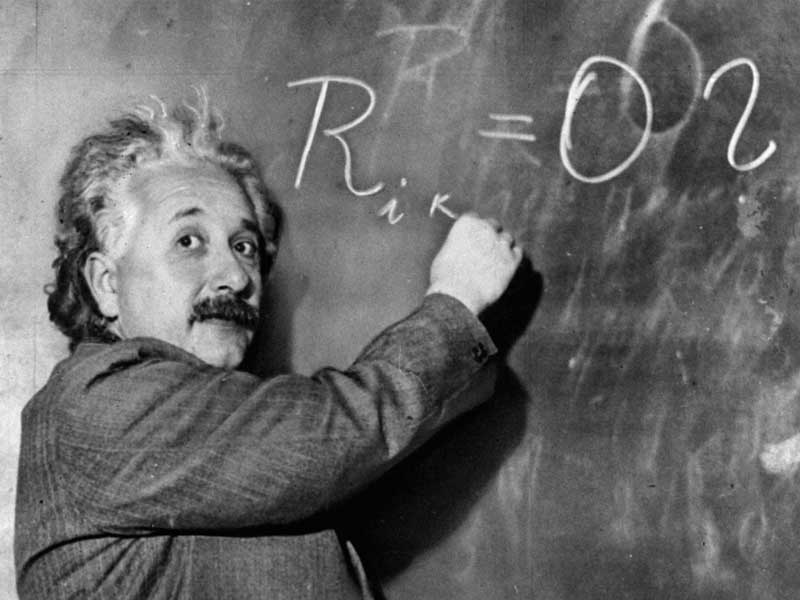 Note Uranus in the Third House. Making it even stronger, Einstein's Uranus is aspected by Jupiter. The opposition is one of the "full" aspects according to Claudius Ptolemy. The ancient Greeks didn't have a notion of good and bad aspects: planets merely cast their influence.
Note Uranus in the Third House. Making it even stronger, Einstein's Uranus is aspected by Jupiter. The opposition is one of the "full" aspects according to Claudius Ptolemy. The ancient Greeks didn't have a notion of good and bad aspects: planets merely cast their influence.
While modern astrologers consider the Opposition to be a malefic aspect, they also note that any aspect from Jupiter will have expansive results. Uranus gets a boost from Jupiter. Since Jupiter is in Aquarius, the sign ruled by Uranus, the enhancement is doubled.
In Einstein's horoscope, the Third House is Leo and its lord Sun is in the Tenth House with Mercury. These are all powerful symbols of "reading, writing and 'rithmetic". In Einstein's case - as we would expect - there are many symbols of reading, writing and 'rithmetic.
 Of all the constellations in the Zodiac or "circle of animals",
the Scales is the only one which is not an animal, not a person or persons: it's a thing.
This suggests something important about this constellation. It is the sign where Saturn is "exalted":
Saturn can function very nicely when it's in Libra, because Libra is all about justice, harmony and
right proportion and Saturn is the Judge. The best place for the judge, is in the Hall of Justice.
Of all the constellations in the Zodiac or "circle of animals",
the Scales is the only one which is not an animal, not a person or persons: it's a thing.
This suggests something important about this constellation. It is the sign where Saturn is "exalted":
Saturn can function very nicely when it's in Libra, because Libra is all about justice, harmony and
right proportion and Saturn is the Judge. The best place for the judge, is in the Hall of Justice.
On the other hand, Libra is the sign where the Sun is said to be "fallen": the Sun has a hard time expressing itself there - especially in the charts of men. The impulse of the Sun is to generate a unique expression of individual identity, but Libra is all about relationships and focusing on... others. Ouch ! When a male has the Sun in Libra, it can be especially difficult: Men are supposed to be decisive and independent, but Libra promotes cooperation and compromise. "Real" men are supposed to initiate action, but Libra inclines them to... stop and smell the roses.
Perhaps during the Age of Libra, everything was heavenly. That was a long time ago - roughly 12,000 BC - before any of us can remember. That would be one-half of the 24,000 year precessional cycle. According to Sri Yukteshwar, we emerged from the low-point in the cycle around 400 AD - when the Vernal Point moved out of Aries - and we are on our way back, moving slowly, to what he considered the high point, the Age of Balance.
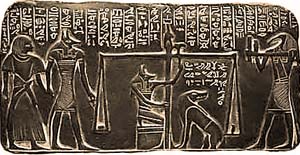 As Saturn is exalted in the Scales of
Balance, the Egyptians believed that after death, every soul is weighed in the Scales of Tehuti - against a feather.
If the heart is found to have any "heaviness" to it, then the soul must return to the world for further refinement.
Perhaps the Christian concept of the Last Judgement, originated in this doctrine. Because religions of relationship emphasize
our roles within the framework of society, we tend to judge ourselves according to how we treat others.
As Saturn is exalted in the Scales of
Balance, the Egyptians believed that after death, every soul is weighed in the Scales of Tehuti - against a feather.
If the heart is found to have any "heaviness" to it, then the soul must return to the world for further refinement.
Perhaps the Christian concept of the Last Judgement, originated in this doctrine. Because religions of relationship emphasize
our roles within the framework of society, we tend to judge ourselves according to how we treat others.
Saturn is exalted in Libra and fallen in Aries. This suggests that our Karma is largely governed by our relationships with others (Libra). It suggests that Saturn's emphasis on structure and simplicity, pairs nicely with Libra's sense of beauty and proportion. Basic Black, as they say, will never go out of style. Our limiting Karma, our "mistakes" if you will, come from being overly impulsive and selfish - the negative qualities of Aries. It's hard for Saturn to express its mature and sober nature, in the Cardinal Fire sign of adventure and excitement. Saturn types prefer a handsome black limousine over a red sports car.
 Saturn presides over the
Earth element and when Saturn is active due to
transits, progressions and other cycles, we often judge ourselves. Too much Saturn can be a "downer": it's hard to live up to
the high standards of accomplishment which Saturn demands. So we often work ourselves too hard. It's good advice when an astrologer
counsels those with a heavy Saturn, to "lighten up"".
Saturn presides over the
Earth element and when Saturn is active due to
transits, progressions and other cycles, we often judge ourselves. Too much Saturn can be a "downer": it's hard to live up to
the high standards of accomplishment which Saturn demands. So we often work ourselves too hard. It's good advice when an astrologer
counsels those with a heavy Saturn, to "lighten up"".
The Earth element corresponds to the bones - especially the back and knees. When the chart shows afflictions to Saturn, the native is likely prone to skeletal problems, hip replacements and lower back issues. Saturn is also suggestive of conditions which are chronic, rather than acute: slow-moving conditions which are the result of aging, or those which show up in old age.
Saturn brings dryness and cold to the body, restricting the flow of blood and the vital energies. People with excess Saturn in their chart, can often find relief in moving to a warmer, sunnier climate.
 The balanced energy of Saturn is important in the
charts of Architects, Engineers and Planners. It favors endurance over amusement.
Archaeologists, masons and miners express the creative forces of Saturn: slow hard work that pays off handsomely in the end.
Without the Earth element, we would have no houses, no buildings, no ground to stand on.
The balanced energy of Saturn is important in the
charts of Architects, Engineers and Planners. It favors endurance over amusement.
Archaeologists, masons and miners express the creative forces of Saturn: slow hard work that pays off handsomely in the end.
Without the Earth element, we would have no houses, no buildings, no ground to stand on.
With regard to metals, Saturn corresponds to the element Lead, which was considered dry, cold and heavy by the ancients. Thus, any heaviness shows presence of Saturn or Karma - something to bring the soul back "down" to earth. The Latin name for Lead is Plumbum, from which we get that most saturnine job, plumbing. You might say that divine judgement allowed the gods to plumb the depths of the souls - literally.
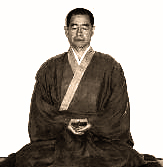 Ultimately, Saturn relates to the stilling of the mind, which lies at the heart of Meditation. The
Sanskrit name of Saturn is Shani, which is related to Shanti, the Sanskrit word for peace.
Ultimately, Saturn relates to the stilling of the mind, which lies at the heart of Meditation. The
Sanskrit name of Saturn is Shani, which is related to Shanti, the Sanskrit word for peace.
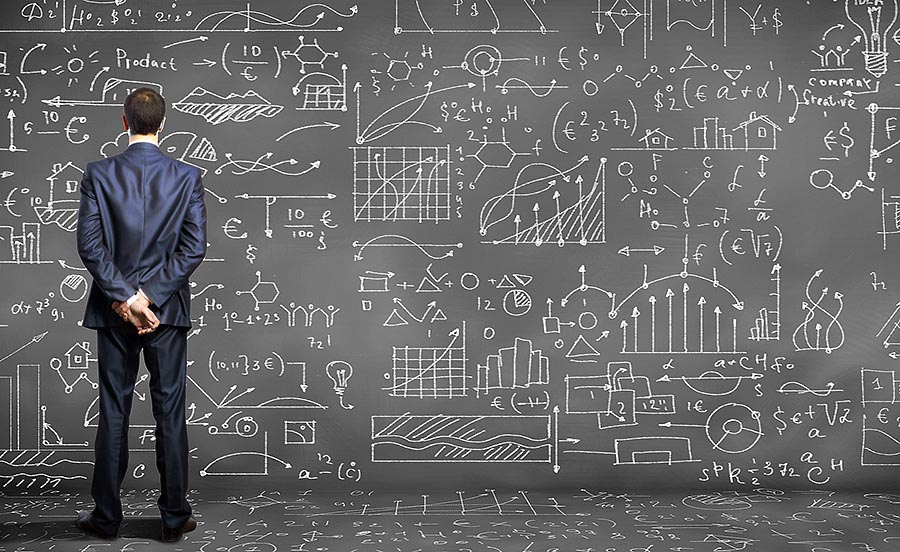 Interested in the horoscopes of other scientists ?
Interested in the horoscopes of other scientists ?
See these articles:
 Want to learn more about Astrology ?
Want to learn more about Astrology ?
See these authors: